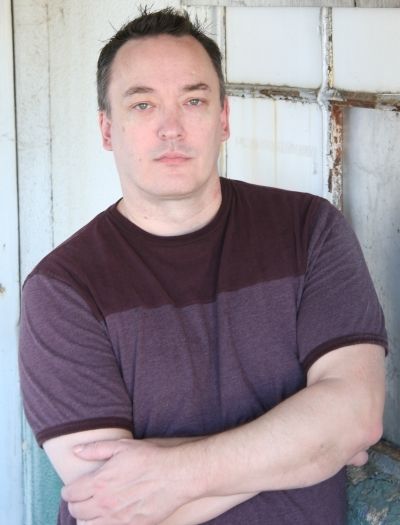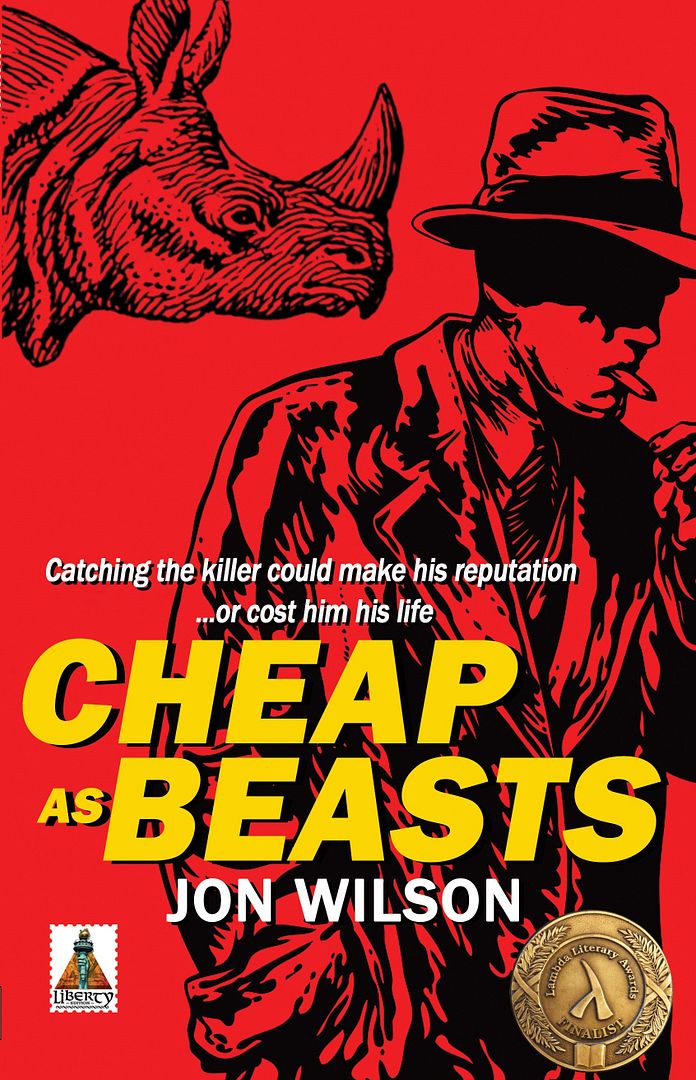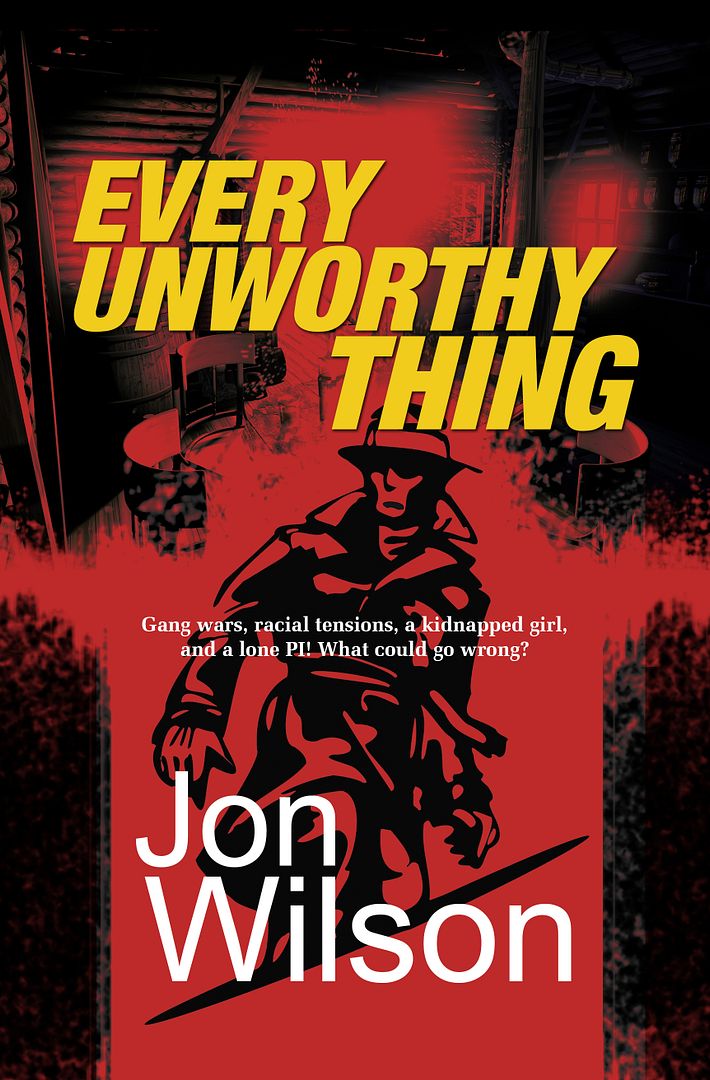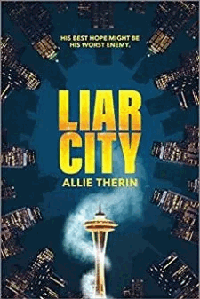
| A five-part series wherein I examine the pitfalls—both real and imagined—and difficulties—both encountered or merely anticipated—to being a gay author in the 21st Century, and attempt to discuss how said pitfalls and difficulties can be used to our advantage, thereby employing the old adage “Making lemons into lemonade.” (And, in advance of the inevitable inquiry, allow me to retreat into the naivete allowed one of my advanced years and answer simply: “What’s a Beyonce?”) |
|
Part 2: Advocacy and Propaganda or Why I Haven’t Written the Notebook 2 |
| “I don’t believe that in the history of letters there are many great books…that don’t advocate. That doesn’t mean that a man is propagandist. It is in the nature of life and it is in the nature of literature that the passions of an author congeal around issues.” | |
| —Arthur Miller, speaking before the House Committee on Un-American Activities (1956) |
| “[E]very time I bat my false eyelashes, it’s a political statement…” | |
| —Ru Paul, repeatedly and in various forms (but here, for example) |
I don’t think of myself as particularly political. I sorta kinda usta be. I worked on the Clinton campaign (the first one—no, not her first one in 2012, I mean his, back in 1992). I belonged, as much as one could, but not as much as some others did, to ACT-UP LA. I’ve voted in every election I’ve been eligible to vote in. But lately, hmm…
Maybe it’s that I’m getting older. Conventional wisdom used to describe a trajectory from liberal to conservative as one aged. Gen-Xers rebelled against their hippie parents, etc., in a sort of political circle of life. But I’ve always been a lefty. All that appears to have changed is that I’ve lost any passion for it. I’ve de-radicalized.
I’m fine with that. At my age I have more than enough irritations not to regret an inability to Feel the Bern. But more power to those young whippersnappers who do feel it. Just, y’know, keep off my lawn.
And, besides, I’m gay. And not just quietly gay—I write about it.
If I had a nickel for all the times I’ve been advised, both subtly and with shocking aggression, of how much more financial success I could find if I didn’t feel compelled to focus on gay people in my storytelling, I’d…Well, probably have enough change to swap those nickels for a quarter, but you get the idea. Not that I’ve ever had someone suggest I swap out the gender of one of my characters to make the pairing straight. I’ve sort of made it a point to make that impossible (historical settings actually help with that—there weren’t a lot of female sheriffs or Federal Marshals at the turn of the last century). But I have heard, “Why do you want to limit your audience?” and (the topper): “You’re such a talented author, you know, I think you could probably write real books.”
After beating them over the head several times with my fake book, I usually haul out some half-hearted retread of the old, “These are the stories I feel compelled to tell.” Which never sounds out loud as good as it does in my head and as often as not nets me nothing but a conciliatory nod and maybe a shrug when they think I’m not looking.
I try not to let it get to me.
Also, there is the latent political factor. Much like Ru Paul’s false eyelashes (no one wants to see me in drag, believe me), the very fact of my stories makes a political statement. As do all the gay stories out there—novels, non-fiction, and, okay, even poetry (apologies to all my poet friends; I just, y’know, don’t get it. But yea! Poetry!). Not that my stories themselves tend toward the political. I write mysteries and the occasional western. But I like to think of them as a form of advocacy. The sort of advocacy a former rebel can still provide. The sort of contribution a former rebel can still make. And that helps me not let the poo-pooers and the arbiters of books-real-and-imaginary not get to me with their well-meaning passive-aggression.
And most times it works. I don’t let it get to me.
Because these are the stories I feel compelled to write and there’s a satisfaction in writing them that more than compensates for the lack of sales. Okay, more than? That’s perhaps an overstatement. Let’s just say there is a satisfaction in writing them and leave it at that.
Because, y’know, I wouldn’t mind a new car…Or a trip to Hawaii.
 |
Jon Wilson is the author of Cheap as Beasts, a current finalist for the Lambda Literary Award Best Gay Mystery of 2015. He’s also written a follow-up volume, Every Unworthy Thing, as well as two westerns. He lives in Northern California where he works passionately as a propagandist for the World Domination branch of the Homosexual Agenda. |
Thanks for bearing with me…
I’m giving away a signed copy of both the Declan Colette books at the end of this blog tour. Just leave a semi-cogent comment (which, I suppose, means I’ll have to allow “YOU SUCK!”) to any of the five parts in the Pink Lemonade Blog Tour to enter (if you leave multiple comments or comment each day, you get entered for each comment)!
And tune in tomorrow for Pink Lemonade Part 3 at Rick R. Reed Reality
 |
 |
| The following is an Except from Cheap as Beasts: |
At ten o’clock, I was trying to get the three magazines in the foyer to fan properly atop the small table. Not that anyone would want to read them. The newest was from March. I had tried sitting in my chair smoking, but that wasn’t going to work. At ten-ten, I was standing by the open window, practicing tossing my hat across the room and getting it to catch on the coat rack. At ten-twelve, I heard the elevator ding for the third time and leapt to get settled in my chair.
Unlike the two previous dings, this one was for me. The outer door opened, and he strode into my office a moment later.
I was leaning back in my chair, my feet up on the corner of my desk, my ankles crossed, a cigarette hanging jauntily from the corner of my mouth, and I looked up at him like he was the last person in the world I had expected to see. “You’re late.”
His ginger hair was combed neatly to one side, and he had gone with nice blue-gray slacks of light cotton. He had on a sweater vest, a ten dollar tie, and no hat. These kids today. Control of his expressions had not quite returned to the level he’d exhibited that first time we’d met. His cheeks ripened as he stood and looked at me. “I nearly didn’t come.”
“Sure. That’s natural.”
“What is? My almost not coming or my saying that?” He ran his hand through his hair negating in a moment all the hard work he’d apparently done on it. He was talking fast, like he had sat somewhere building up his nerve, and now it was unwinding like a top. “Because it’s a lie, of course.” He moved jerkily over between the two client chairs and then took the one on his right. He plopped down into it hard, like it was his turn to prove a point. There was more to his soliloquy. “I don’t even know why I said it. I tried to convince myself I might not come. I wasted a lot of time and plenty of good bourbon on it. But the more I drank, the more inevitable it seemed.”
“How much have you had today? Liquid courage, I mean.”
He looked up at me, his eyes wide. “You just…you’re brutal. Is that attitude supposed to help? Keep me from lapsing into shock like—” He swallowed something hard. “Like that slap you offered yesterday? I saw those tricks during the war. It struck me as bunk then, and it strikes me as bunk now. And brutal. Give me a cigarette.”
“Say please.” But that just confused him, so I dug out my pack. “You people. Why don’t you carry your own?”
“I usually do. My mind was a bit distracted this morning. I…I think I have a pack in my car. Probably.” Taking the cigarette I offered, he did produce his own expensive, gold-plated lighter, which made me think he might not have been lying about normally carrying his own. He lit up and sat back, relishing that first puff. He closed his eyes closed, then opened them and perused my desk. “Why don’t you keep some out? For clients. My broker has a Faberge dispenser he keeps right about here.” He leaned forward to touch my desktop near the front about a foot from the corner. “Three different brands of cigarettes.”
“Sure. Faberge. It would match the couch.”
He sat back, examining the cigarette I’d given him. The smoke or the tobacco or maybe just having a toy in his hand that he could fiddle with had done the trick. His words weren’t tripping over themselves trying to make it out of his mouth. He took a slow breath and let it out. “I like that couch. You’d be surprised what an impact seeing that thing had on me. Lana wasn’t at all keen to even come in here after getting a look at your hallway out front. But the instant I saw that couch, I knew we’d found the right place.”
It was my turn to be confused, so I backtracked. “I thought you said you were on an English holiday during the war.”
“No, that’s what you said. Trying to be rough. And I haven’t had anything to drink today.”
“Want some?”
“No. Damn it, I couldn’t. Not after yesterday.” He attacked his hair again. The problem was that he was shoving it against the part, and it was falling down in a scattered mess across his eyes. “I don’t think I stopped drinking after the police left. And you came. I think I thought you were going to help.” He glanced up at me through his bangs.
“Is that why you called me Tuesday night?”
“Called you?”
“Yeah, Tuesday at about ten. I got a message you had called.”
He seemed genuinely perplexed. “I don’t know—oh!” It hit him. “Yes. I mean, no. I was calling to apologize. For Lana and…and what happened. It was nothing. I’d completely forgotten I’d telephoned you. That’s strange?” He put it up to me like a question.
I shrugged. It didn’t strike me as too remarkable in light of all that had happened since. “You sure you don’t want a shot of something?”
The corner of his mouth went up. “It’s not even ten-thirty.”
“What time did you start yesterday?”
“Nine. Maybe. Maybe eight-thirty.” He took another deep breath. “But that was different. Yesterday was a nightmare. The police were brutal.”
“The police were brutal. I’m brutal. Brother, you have no idea. This thing’s just leaving the gate.”
He slid lower in his chair, propping his arms on the rests. His hips were nearly riding the front edge of the seat cushion. He looked disgusted about something, but whether it was murder or the twin brutalities of me and the police, or maybe just his drinking, I can’t say. He wasn’t much of a smoker either. The cigarette spent more time smoldering between his fingers than it did in his mouth.
“I’m not really that weak. At least—God, I hope I’m not. It’s just they all decided so long ago that I was unfit for…so much of life. Those things weren’t for me. I wasn’t to be allowed in. I guess I’d gotten used to breezing along the periphery of everything. My life wasn’t real. Now it’s…” He hesitated.
“Real?”
He gazed at me again, shaking his head. “Don’t laugh at me. I may very well still be drunk.”
“Are you normally that type of drunk? The philosopher?”
“I’m normally the fool. Drunk or sober. Ask anyone.”
“Sure, now you sound like a whiny rich kid.” He no doubt thought that brutal, but I meant it. I sat forward. “Did you do what I asked? Did you bring the letter?”
“Asked? Is that what you call it?” He dug a folded paper from his breast pocket. “Yes. It wasn’t easy. Joe said you and he had discussed it and agreed he would take the lead. He didn’t want me to—what’s so funny?” He stopped in the process of handing the document over, apparently put off by my laughter.
“Nothing.” I quashed the chuckles and took hold of one end of the paper. “Nothing is funny at all.”
He didn’t let go of his end. I could see he doubted me. “Then why are you laughing?”
“That Joe.” I gave the paper a tug, prompting him to release it. We both sat back. “Sometimes he gets confused.”
O’Malley flattened his tie to his chest and then reached up to comb his fingers through his hair the right way this time, pushing his big curtain of ginger bangs back across the top of his head. He was looking at something on the edge of my desk. “I don’t know. He seems pretty slick to me. Too slick. Lana’s—” He stopped himself with a visible jerk and swung his gaze up at me.
I tried to make him think I wasn’t paying attention. I’d opened the document in my hands and gave it a thorough look. It was plain stationery, eight-by-five, yellow, with no date nor addressee nor salutation. About halfway down the page someone had typed:
What was in the drink his wife gave him the night Lawrence O’Malley died? Why had the glass been removed and washed before the police arrived? Why had the entire staff been given the night off? Two men dead. How many more shall follow?
Naturally there was no signature, but without trying to prop myself up, I think I knew immediately who had sent it. And it wasn’t just a hunch or intuition; it was keen observation and the fact that at least one person the day before had let on that she knew too.


Interesting post. Diversity in books are important not everyone wants the Notebook 2.
LikeLike
Yeah, but I’ve got to confess I’d be jazzed with just a fraction of Mr. Sparks’s readership…!
LikeLike
I really enjoyed the excerpt. Thank you for sharing it with us
LikeLike
Thank you! I’m here all week. (Or, rather, I’m posting all week at various locations around the net!)
:)
LikeLike
Quote: ‘“You’re such a talented author, you know, I think you could probably write real books.”’
Oh my goodness. That statement makes me cringe. I’m glad you followed the path you felt compelled to take. Even though money’s not to be scoffed at, being true to yourself must win out in the long run?
LikeLike
What’s amazing about statements like that one, is that I truly believe the speakers think they are being not only encouraging but helpful. (And, y’know, the time I heard it that sticks in my head is when it was said after sex by a guy lying naked next to me. Oy!)
LikeLike
Can you contact me at my email re the prize? JonWilsonBooks@aol.com
LikeLike
Sorry that was directed to Aussie54, I hoped the reply button would make that more obvious.
LikeLike
The covers are very intriguing.
LikeLike
They are certainly not the industry standard. Bold Strokes was very willing to try something a little off the beaten path.
Thanks!
LikeLike
Question to the author: Which of your characters do you feel more connected to? why?
LikeLike
That’s an interesting question. I think the one that comes closest to being me (and not just because I made the rookie mistake of giving him my actual Christian name) is Jack Tully the protagonist of my first book, A Hundred Little Lies. In my head he even looks a bit like me.
Declan Colette (the gay PI in Cheap as Beasts and Every Unworthy Thing) looks absolutely nothing like me except we’re both big. I find him the hottest…But I guess that isn’t what you asked.
Eugene Grey, the protag of A Shiny Tin Star is more of a remembered idealized version of who’d I’d have liked to be 20 years ago. But I wrote that as kind of a cathartic bit of closure for a long-ago failed relationship that had continued to haunt me.
That was probably more info than you wanted. But it was a great question and got me thinking!
LikeLike